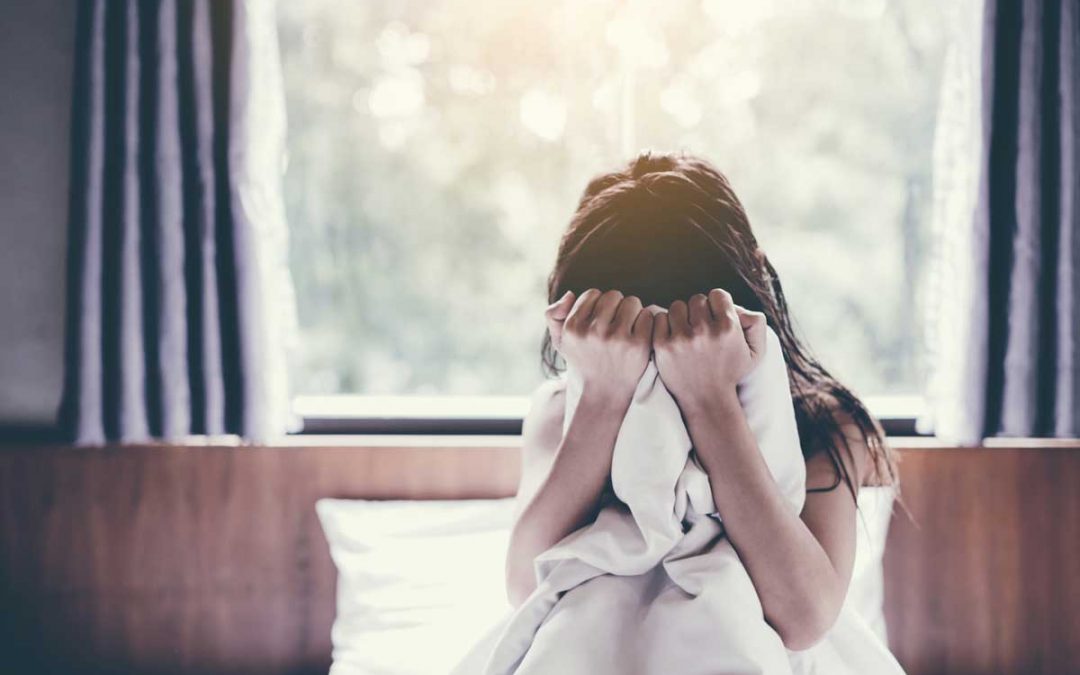The Effects of Sexual Abuse. There are more than 321,500 victims of sexual assault, aged 12 or older, each year in the United States. This number might be higher in reality, because most abuse cases go unreported due to fear or shame. The consequences of sexual abuse may be emotional, physical, and psychological with the most common effects being psychological.
The U.S Justice Department defines sexual abuse as any acts to which you don’t consent to. This also includes when the victim “lacks capacity” to consent. Sexual abuse can take many forms, ranging from sexual remarks and gestures all the way to being groped, or forced to have sex, either by a stranger or your partner.
Psychological Effects Of Sexual Abuse
Fear & Panic
One of the most common feelings that follow right after being assaulted is that of fear and panic. People get worried about their safety, and in the case of women, the fear of pregnancy or a sexually transmitted disease starts festering. For that, rape crisis centers are a safe place where you can get diagnosed, and your health and emotional needs are met.
Blame, Guilt, & Excuses

People also start blaming themselves for the attacks, which is the wrong train of thought for a victim. Sexual abuse is not the fault of the victim but that of the oppressor. Believing that it’s somehow your fault or finding excuses for what happened is the mind’s way of finding control over a situation that was out of your control and on top of that, frightening.
PTSD
Victims may also develop post-traumatic stress disorder (PTSD), a longstanding problem that only goes away with the help of professionals.
PTSD symptoms may start showing a month or two after the event or appear years after, causing significant problems for the victim’s social and work life. Major PTSD symptoms include
- Intrusive memories
- Avoidance of activities or people that might remind victims of the traumatic event
- Negative mood and thinking patterns
- Abrupt and extensive change in physical and emotional reactions
These symptoms vary from person to person. Immediate steps should be taken to allow the victim to regain control over their life.
Trust Issues & Isolation
Sexual abuse is the utmost betrayal of trust, especially if the oppressor is someone you know. Victims usually start defamiliarizing themselves with the world and lose the ability to trust someone. They might set unrealistic standards of trust for people and find that no one comes up to that stock.
This leads to isolation, one of the biggest problems faced by adult victims. They do not feel like they deserve support, thinking themselves tainted or flawed. Many victims also get shunned from their families and communities.
Physical Effects Of Sexual Abuse
Although a result of the psychological trauma, victims’ physical health is also impacted by sexual abuse. Victims may have somatic complaints such as eating disorders, a shift in sleep patterns, elevated startle response, pregnancy, or numbness.
Victims may also be physically affected in the area of sexual abuse.
Emotional Effects Of Sexual Abuse
Sexual abuse has a deep impact on the emotional state of victims. It can disturb their emotional state and make them very expressive in regards to their anger and sadness. Victims start tending towards the pessimistic mode of thinking, regardless of how optimistic they were before the event.
Victims go into disbelief and denial, hoping that thinking like it never happened might make them feel better and ultimately make them forget anything happened. One very common way of doing this is becoming distant with the reality of the event.
It is common for victims not being able to concentrate or focus on specific tasks because they get used to numbing their mind with things that remind them of the event. This numbness is bound to find its way into other tasks as well.
Victims might find themselves unable to block out the thoughts of the event, especially when they let their mind wander. They may constantly play the event in their head and think about the things they could have done differently. Nightmares, dissociation, and flashbacks are common. They might play different variants of the event, living in a situation where they would come on top of the aggressor.
They might also lose the ability to find sexual activities pleasurable.
It is important for sexual abuse victims to understand that regardless of your gender, sexual orientation, or age, these reactions are normal – but to an extent. With time, you’ll heal, and the confusion, fear, trauma, and stress will lessen. However, if you see these traits sticking, you should seek help. There are a large number of facilities and professionals out there who have dedicated their lives to helping sexual abuse victims. It is perfectly normal to seek help before the effect becomes graver.
Don’t let the same event victimize you twice!


Recent Comments